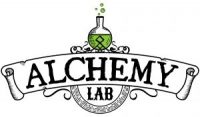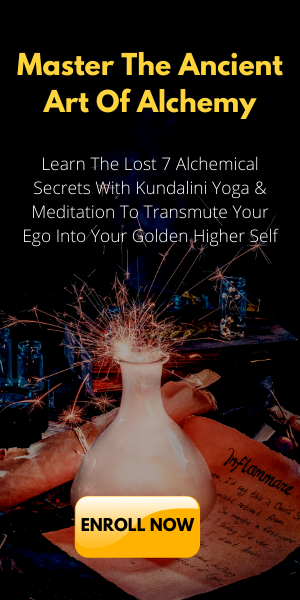A CHRONOLOGY OF ALCHEMY
A CHRONOLOGY OF ALCHEMY
by Arabella Akossy
10000 BC – Egyptian dating of Thoth, credited as inventor of writing, mathematics, astronomy, architecture, medicine and music. The Supreme Alchemist.
3400 BC – Athothis, deified being with great learning and healing abilities
3000 BC – rise of ancient Indian healing art Ayurveda, which used alchemically processed gold in medicines
2650 BC – Imhotep – designer and builder of first pyramid, philosopher, astronomer, healer
2670 BC – arrival of Hiram Ibif, the first Hermes according to Freemasonry
2000 BC – Berlin Papyrus
1500 BC – Papyrus of Ani
1450 BC – Book of the Dead
1364 BC – Amenhotep IV, later renamed Akhenaten, rediscovered the Emerald Tablet and set up new monotheistic religion based on writings of Thoth
650 BC – Zoroaster, a Persian philosopher presumed another Thoth-Incarnation
500 BC – Alchemy first arises in China
450 BC – Greek philosopher Empedocles first creates the concept of Four Elements
400 BC – Plato uses Empedocles doctrine; Plato s Timaeus
350 BC – Aristotle adapts Four Element theory which is later erroneously ascribed to him
332 BC – Alexander The Great finds the Emerald Tablet in an ancient temple tomb at Siwa, arranges for Greek translations
330 BC – the Emerald Tablet is put on public display in Heliopolis
300 BC – discipline of alchemy is starting to be actively pursued in China
290, 270 and 50 BC – revised Greek translations of the Emerald Tablet are issued
100 BC – female Jewish alchemist Maria Prophetissa invents the Bain Marie, etc.
32 AD – Balinas, later called Apollonius of Tyana, finds Emerald Tablet and its teaching are introduced to the Western world
317-332 AD – Ko Hung writes about three different kinds of alchemy
400 AD – all of Apollonius’ books are among the vast knowledge destroyed in the successive burnings of the Alexandrian libraries
650 AD – earliest surviving translation of Emerald Tablet in an Arabic book known as Book of Balinas the Wise on Causes
790 AD – another translation of Emerald Tablet appears in Kitab Sirr al Asar, book on advice to kings
711 AD – Moorish invasion of Spain brings Arabic translation of Emerald Tablet to Europe
722-815 AD – Gebir (Jabir Hayyan)
800 AD – Arabic text by Jabir Hayyan contains Emerald Tablet translation
865-925 AD – Rhazes (al-Razi), Arabian physician and alchemist
947-999 AD -Quetztalcoatl, the Mayan Hermes incarnation
980-1037 AD – Avicenna (Ibn Sina), renowned physcian and philosopher
1098-1179 – Hildegard von Bingen (Scivias, 1148)
1144 – Earliest dated Western alchemical treatise – Robert of Chester: De compositione alchemiae
1150 – Turba philosophorum translated from Arabic
1200-1280 – Albertus Magnus (De mineralibus, 1264)
1201-1259 – Bartholomaeus Anglicus, reknowned encyclopedist (De rerum proprietatibus, 1230)
1214-1294 – Roger Bacon (1266:Opus maius, 1267: Opus tertium, Speculum Alchemiae))
1225 – Michael Scot Liber introductorius, Liber particularis
1225-1274 – Thomas Aquinas (1270: Summa theologia)
1231 – First mention of alchemy in French literature: Roman de la Rose
1235-1316 Ramon Lull (Ars Magna, 1275)
1235 – Robert Grosseteste, Bishop of Lincoln, discusses transmutation of metals in De artibus liberalibus and De generatione stellarum
1240-1270 – Arnold De Villa Nova, writes a number of important treatises on alchemy
1240 – The Dominican Thomas of Cantimpre mentions alchemy in his Liber de natura rerum
1250 – Vincent de Beauvais: Speculum Maius (this encyclopaedia mentions alchemy in many places)
1256 – King Alfonso the Wise of Castile orders translation of alchemical texts from Arabic.
1257 – Franciscan friar Bonadventura d’Iseo’s Liber Compostella provides some alchemical recipes
1272 – Provincal Chapter at Narbonne forbade the Franciscans to practice alchemy
1273 – Dominican order warned friars not to study or teach alchemy
1288-1339 (?) – John Dastin, writes his alchemical letters to Pope John XXII in 1320
1309-1348 (?) Petrus Bonus of Ferrara Pretiosa margarita novella, 1335)
1313 – Friars Minors’ Constitution Generales Antique forbade the friars to practice alchemy
1317 – Pope John XXII’s Papal Bull against alchemical counterfeit Spondet quas non exhibent. Cistercians ban alchemy.
1318 – The monk Adolf Meutha driven from the Cistercian Monastery at Walkenried for practising alchemy.
1323 – Dominicans in France prohibit the teaching of alchemy at the University of Paris, and demand the burning of alchemical writings
1329 – King Edward III requests Thomas Cary to find two alchemists who have escaped, and to find the secret of their art
1330-1418 – Nicholas Flamel (Figures hierogliphiques)
1330 – Pope John XXII gives funds to his physician to set up a laboratory for a “certain secret work”
1338-1400 – (?) Geoffrey Chaucer
1339 – Pope Benedict XII orders an investigation into the alchemical activities of some clerics and monks
1352 – Pseudo-Lullian Liber de secretis naturae seu de quinta essentia
1356 – Pope Innocent VI imprisons the Catalan alchemist John of Rupescissa
1357 – Hortulanus’ commentary on the Emerald Tablet of Hermes
1358 – Francesco Petrarch discussed alchemy in De remediis utriusque fortunae
1376 – The Dominican Directorium inquisitorum, the textbook for inquisitors, places alchemists among magicians and wizards.
1379-1439 – (?) Isaac Holland
1380 – King Charles V the Wise issues a decree forbidding alchemical experiments
1385-1441 – (?) Georges Aurach
1403 – King Henry IV of England issues a prohibition of alchemy
1412-1480 – (?) Lacinius
1406-1490 – Bernard of Treviso
1415-1490 – George Ripley (Compound of Alchemy, 1471, Medulla alchemiae, 1476)
1415 – Early German Buch der heiligen Dreifaltigkeit paralleling Christ and the Philosophers’ stone
1433-1499 – Marsilio Ficino (sets up the Platonic academy in Florence,1450, translation of Corpus Hermeticum, 1471)
1454-1537 – Augurello
1455-1522 – Johannes Reuchlin
1456 – twelve men petition Henry VI of England for a license to practice alchemy
1463-1494 – Pico della Mirandola
1465-1518 – (?) Trithemius of Sponheim
1468-1540 – (?) Francesco Giorgi
1470 – Der Antichrist und die Zehn Zeichen associates alchemists with demons and satan
1477 – Thomas Norton: Ordinall
1484 – Avicenna’s De anima published
1485 – Pseudo Geber s Summa perfectionis published
1486-1535 – Henry Cornelius Agrippa (Three Books of Occult Philosophy, 1531)
1488 – The figure of Hermes Trismegistus is put into the mosaic pavement in the Sienna Cathedral
1493-1541 – Paracelsus, revolutionary German physician, employed alchemy in service of medicine; developed theory of tria prima
1494-1555 – Georgius Agricola (Bermannus, book on mining and extraction of ores, 1530, De re metallica)
1505 – Berg provides first published information on traditions of mining
1519 – Braunschweig’s Das Buch zu Distillieren
1525-1580 – (?) Thomas Charnock
1527-1608 – John Dee (Hieroglyphic Monad, 1564)
1528-1577 – Adam von Bodenstein edits various writings of Paracelsus
1532-1595 – (?) Thurneisser von Thurn
1532 – Earliest manuscript of the Splendor solis
1533-1588 – Valentin Weigel
1535-1612 – Giambattista della Porta (Magia naturalis, 1560)
1540 – Vannoccio Biringuccio: De la Pirotecnia
1540-1616 – Andreas Libavius (Alchymia 1595, is first systematic textbook of chemistry)
1540-1601 – (?) Petrus Severinus
1541 – In hoc volumine alchemia is first alchemical compendium
1545-1608 – (?) Joseph Duchesne (Quercetanus)
1548-1600 – Giordano Bruno
1550 – Rosarium Philosophorum published
1550-1623 – Francis Anthony
1555-1595 – Edward Kelley
1555 – First edition of Alessio Piemontese Secreti
1560-1605 – (?) Heinrich Khunrath (Amphitheatrum sapientae aeternae)
1561 – Peter Perna prints the compendium of 53 alchemical treatises, Verae alchemiae artisque metallicae
1563-1628 – (?) Francis Bacon
1564 – Nazari’s Il metamorfosi metallico et humano
1566-1636 – Michael Svendigius
1568-1622 – Michael Maier (Atalanta Fugiens, 1617)
1572 – Peter Perna prints the compendium Alchemiae quam vocant
1574- 1637 – Robert Fludd (Utriusque Cosmi historia, 1617; Summum bonum,1629)
1574 – Peter Perna prints the collected works of Paracelsus in Latin.
1575-1624 – Jacob Boehme (Aurora)
1577-1644 – Johannes Battista von Helmont
1579-1651 – (?) Arthur Dee (Fasciculus chemicus in Latin, 1631)
1580-1609 – (?) Oswald Croll (Basilica chemica)
1583-1628 – (?) Johan Daniel Mylius (Opus Medico Chymicum, 1618, Philosophia Reformata, 1622)
1586-1654 – Johann Valentin Andreae
1599 – First appearance of a work of Basil Valentine. Book of Lambsprinck included in Barnaud’s Triga Chemica
1600-1679 – (?) Barend Coenders van Helpen
1602-1680 – Athanasius Kircher
1602 – Publication of the first volumes of the compendium of alchemical texts Theatrum Chemicum
1603-1655 – Sir Kenhelm Digby
1603-1678 – (?) John Junior Winthrop
1604-1670 – Johann Glauber
1604 – Basil Valentine’s Triumphal Chariot of Alchemy. Simon Studion’s Naometria ms. Novum lumen chemicum
1610 – Jean Beguin Tyrocinium chymicum
1612 – Ruland’s Lexicon alchemiae
1614 – Fama fraternitatis. Isaac Casaubon redates the works of Hermes Trismegistus
1615 – Confessio fraternitatis
1616 – Chymische Hochzeit
1616-1654 – Nicholas Culpepper
1617-1692 – Elias Ashmole (Theatrum Chemicum Britannicum, 1652)
1618 – Theophilus Schweighardt Speculum sophicum rhodo-stauroticum
1618-1699 – Franciscus Mercurius van Helmont
1620 – Gloria Mundi
1622-1666 – Thomas Vaughan (edits translation of Fama and Confessio in 1651)
1623 – Jean d’Espagnet s Enchiridion physicae restitutae
1624 – Stolcius’ Viridarium chymicum
1625 – Musaeum hermeticum
1625 – Sophic Hydrolith (Water Stone of the Wise)
1625-1709 – Helvetius
1626-1691 – Robert Boyle (The Sceptical Chymist, 1661)
1628-1666 – (?) George Starkey
1636-1689 – Knorr von Rosenroth (Kabbala Denudata, 1674
1643-1727 – Isaac Newton (completed a translation of ET in 1680)
1651 – John French The Art of Distillation
1654 – Pierre Borel Bibliotheca chimica
1669 – Johann Becher develops pinguedo terrae principle
1672 – Bibliotheque des philosophes chimiques
1673 – William Cooper begins to publish works on alchemy especially those of Eirenaeus Philalethes
1677 – Mutus Liber
1678 – The Hermetic Museum by Arthur Edward Waite
1682 – Gichtel’s edition of the collected works of Boehme
1690 – Publication of the English translation of the Chemical Wedding of Christian Rosenkreutz.
1702 – Georg Stahl develops Phlogiston Theory based on Becher’s principle
1702 – Manget Bibliotheca Chemica Curiosa (alchemical compendium)
1710 – Samuel Richter begins to form the Order of the Golden and Rosy Cross
1719 – Georg von Welling Opus mago-cabalisticum (first edition)
1728 – Friedrich Roth-Scholtz Deutsches theatrum chemicum
1735 – Abraham Eleazar Uraltes chymisches Werck
1752 – Hermaphroditisches Sonn- und Monds-Kind
1758 – Dom Pernety Dictionnaire Mytho-Hermetique
1774 – Jospeh Priestley isolates Dephlogisticated Air
1776 – Adam Weishaupt forms the Order of Illuminati of Bavaria
1779 – Birkholz Der Compass der Weisen
1785 – Geheime Figuren
1789 – Traite Elementaire de Chimie by Atoine-Laurent Lavoisier marks transition to a strictly scientific approach
1802 – Karl von Eckartshausen Chemische Versuche
1869 – Gottlieb Latz Alchemy: The Science of the Great Elixir of the Alchemists
1898 – Antoine-Joseph Pernety: An Alchemical Treatise on the Great Art
1930s – C.G. Jung Alchemical Studies
1930s – Manly P. Hall The Secret Teachings of All Ages





